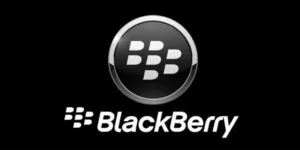The old saying that every cloud has a silver lining is being showcased in the war in Ukraine. Last week at BlackBerry’s annual security conference, one of the leaders of Ukraine’s cyber defense, Victor Zhora, pointed out in great detail what being on the receiving end of state-sponsored cyber-attacks in a war setting is like. It is unlike anything we are currently prepared for in the rest of the world.
The work that BlackBerry and thousands of other coordinated cyber security analysts (BlackBerry has around 1,000 of its own folks working on this) are doing provides the company with unmatched experience and makes it the best security solution for companies and countries that want to be prepared if one of the hostile states (including China and North Korea) put them in their crosshairs.
Let’s talk about the benefits that security researchers, and particularly BlackBerry, get from helping Ukraine because it goes beyond just doing the right thing. It makes BlackBerry the world power for battlefield-tested cyber defense.
Let’s talk this week about why BlackBerry’s solutions are advancing thanks to its work in Ukraine.
Cylance AI
BlackBerry’s focused security efforts come from its Cylance acquisition. Cylance is one of the first of a growing number of security solution providers that use AI to get ahead of cyber threats. A combination of Machine Learning (ML) and Deep Learning (DL), the solution looks for behavior that indicates someone or something has been compromised and moves at machine speeds to isolate and mitigate the threat.
In DL mode, AI trains itself. Massive data sets are required for the training which is why DL solutions often don’t meet expectations. But a war with one or more countries (I expect North Korea, China and Iran either are or will assist Russia in its Malware efforts) provides Cylance AI with an unprecedented amount of data on how state-level attacks are created, delivered, and executed. This massive amount of information is undoubtedly turning Cylance’s AI into one that is uniquely capable of handling state-level attacks which are generally way outside the scope of most cybersecurity solutions.
This benefit has a long tail since this training data can be passed on generationally and will continue to help Cylance advance its AI long after the war in Ukraine is over. If you want a defense against any attack, no matter how well funded, this war-trained solution should significantly outperform anything that didn’t get that same level of training.
Collaboration and Law Enforcement
One of the biggest problems with state-level attacks is that, short of war, bringing the attacking party to justice is nearly impossible. But this war has connected defending states and the entire cyber defense industry, unlike any other event I’ve ever seen. Being in the middle of it, BlackBerry should have a deeper understanding of just what a company can do to go after an attacker that has harmed their companies. While this capability against Russian attackers will initially be limited by the war, once peace is negotiated, they will be in an ideal position to assure that those in Russia still behaving badly can be brought to justice, and the mechanisms that have been created as a result of this conflict can effectively be used to strike back at attackers from other hostile states.
This should make bad players think twice about attacking BlackBerry accounts in the first place because no one wants the downside of being punished for this behavior. Simply finding out that the firm is defended by BlackBerry should, once this capability is demonstrated, cause them to choose a different target.
BlackBerry AtHoc
One of the most underappreciated solutions that BlackBerry has is its AtHoc offering. AtHoc is targeted at providing command and control capability across an organization or country during a disaster. I’m a big believer in this because, during a disaster, most of the avoidable deaths and injuries are to people who run into areas of high risk rather than out of them.
AtHoc allows managers and coordinators to assure the safety of their employees and citizens by helping them find a way to safety. This requires a working communication system, and once that reliable communication system was established, the BlackBerry messaging network became the critical go-to during the 9/11 attacks on the U.S.
I expect this conflict will again showcase that the world needs a more reliable communications network that can remain viable during a major catastrophe or war. The increasing use of satellite connectivity options being highlighted by Apple and Starlink could provide, once widely available and coupled with AtHoc, a level of safety and coordination during a disaster or a war that may save your or my life in the future.
Wrapping Up:
BlackBerry has put a ton of resources into helping Ukraine since early in the conflict. As an unintended award, BlackBerry is receiving an unprecedented amount of learning that enables it to advance its capabilities at a level rarely seen outside of a war. These advancements will not only make BlackBerry’s anti-Malware offerings far more effective, it will create an effective warning to attackers that the risks of attacking a BlackBerry account will be unacceptably high. In addition, BlackBerry’s AtHoc product, when coupled with the coming wave of satellite-connected phones, could assure that you and I are far safer in the future if our governments step up the risks of war and climate change which will likely define our future lives.
In the end, the lesson here is that there is often a huge benefit to doing the right thing. I hope other firms learn from BlackBerry and step in to help countries in trouble to both punish aggressors and make us all, eventually, safer over time.








